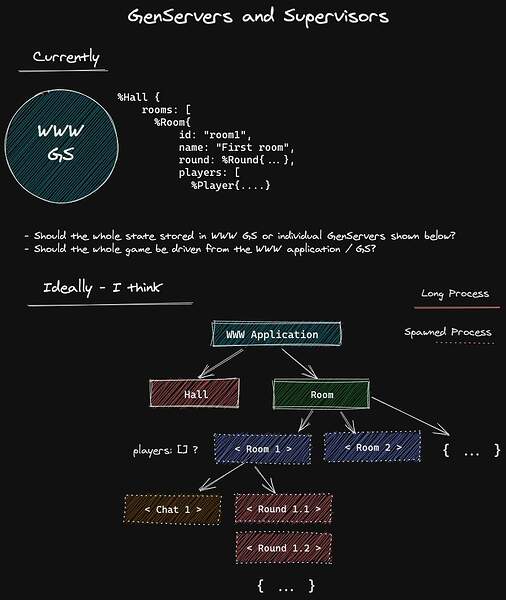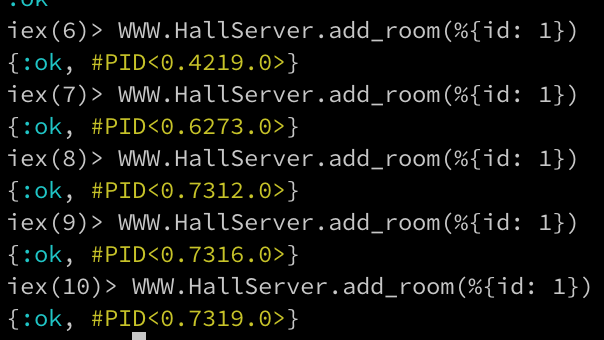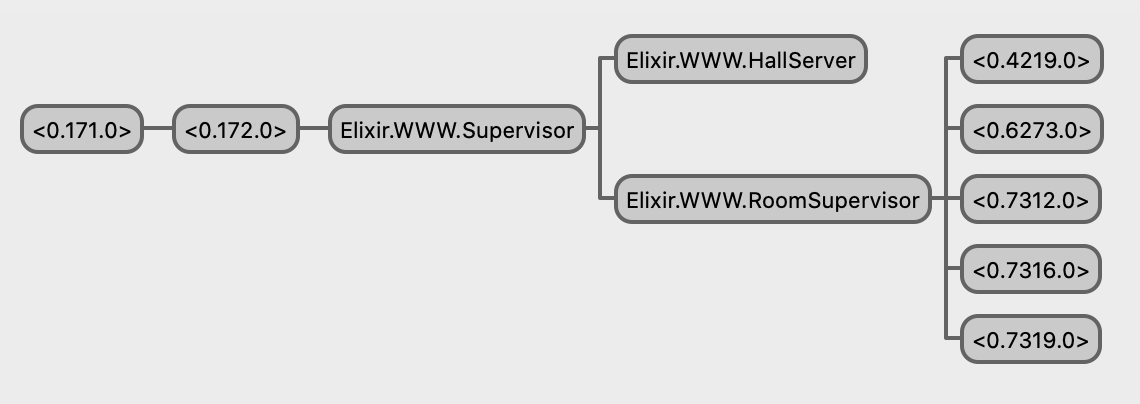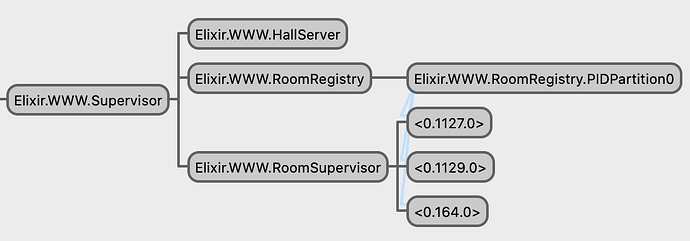Introduction
Hi all,
Looking to design and develop this fun paper game from my childhood in digital with elixir, phoenix (channels, presence), and possibly LiveView with the members of this community.
I already have a working one with angular+socketio+python so this is a good learning curve with the elixir community.
Here is the game, rules, and a sample round of me trying to explain how the game works. This game might exist online already under different names for different cultures. I didn’t investigate.
Rules and Play
Design
I aim to follow the design principles that are demonstrated and explained brilliantly in this article as much as possible
https://www.theerlangelist.com/article/spawn_or_not
Aspirations (intentionally left vague)
- Hoping for
store nothingapproach - If
thingsneed to be stored somewhere, prefereviction and memorybased storage. thingsshould keep a tidy house at all times within their scope.
Behaviours
Player
Scenario: New user identification success
Given I am an anonymous user
and I visit the Game Server
and I am required to enter my name
When I enter "nickname"
Then the "nickname" is accepted
Scenario: New user identification, nickname non UTF-8 encoding
Given I am an anonymous user
and I visit the Game Server
and I am required to enter my name
When I enter "0xC0, 0xC1, 0xF5, 0xF6, 0xF7, 0xF8, 0xF9, 0xFA, 0xFB, 0xFC, 0xFD, 0xFE, 0xFF"
Then the "0xC0, 0xC1, 0xF5, 0xF6, 0xF7, 0xF8, 0xF9, 0xFA, 0xFB, 0xFC, 0xFD, 0xFE, 0xFF" is rejected
Scenario: New user identification, nickname too long
Given I am an anonymous user
and I visit the Game Server
and I am required to enter my name
When I enter "nickname longer than 20 characters"
Then the "nickname longer than 20 characters" is rejected
I will slowly expand the following Rooms, Gathering Hall, and Server as scenarios in time.
Rooms
- Can be created
- Should have a string identifying the name
- Should have a string language identifying the language used in the room.
- Should have an identifier of being
privateorpublic - Minimum 3 players needed to start a
roundand play the game. - Able to know which players are in the room
- There is no maximum player limit to a room but should investigate for performance reasons.
- Can be joined only, if it hasn’t reached
maximum user count and no active round is in play - Can initiate a new round by the ‘administrator’ if there are more than
2 playersin the room. - Can be destroyed by the
creatororadministrator - Can be destroyed only
if there is no active round - Players should be able to
chatwith each other outside of anactive round - Should do
self-cleaningwhere possible
Round
- Can be initiated by 'administrator
- All the players should receive the first question at the
roughlysame time - After answering a question,
playershould be presented with the next one. - If a player finishes all their questions, they simply wait for
all playersto finish. - If the player count has fallen below the
minimumplayers at any instance, the round should be abandoned - Should be able to identify which players have answered the
current/pastquestions - Should have a
maximum time setto end the round if it does not end by player interaction. - Round finishes when
all the questions are answered byall the players` - Round should be able to display the
storieson each player’s screen upon finishing. - Chat should be activated when a round has
finishesregardless of reason - Should do
self-cleaningwhere possible
Gathering Hall
- Should list all the
publicrooms that areavailable to join - Should include
name, language, player countof each room - Should be able to filter by
language - Should be able to
sortbyplayer count - Should do
self-cleaningwhere possible
Community
I want this to be a community effort where people can peer-review each other’s code and approach and we can all learn from each other in a fun small project.
Repositories
Elixir Library - GitHub - ykurtbas/elixir-www: Elixir library for the online multiplayer game WhoWhatWhere
Phoenix UI - GitHub - ykurtbas/phoenix-www: The phoenix application for WhoWhatWhere game
More Questions?
I didn’t take any further design restrictions and decisions.
I probably missed a couple of important points, either on purpose - not to dictate the design or genuinely forgot. Please ask away!
Please let me know what you think or ideas for implementation, developing together.
Review
Please have a look at the commits to check if I am on the right path, specifically where to mutate the players in the room.
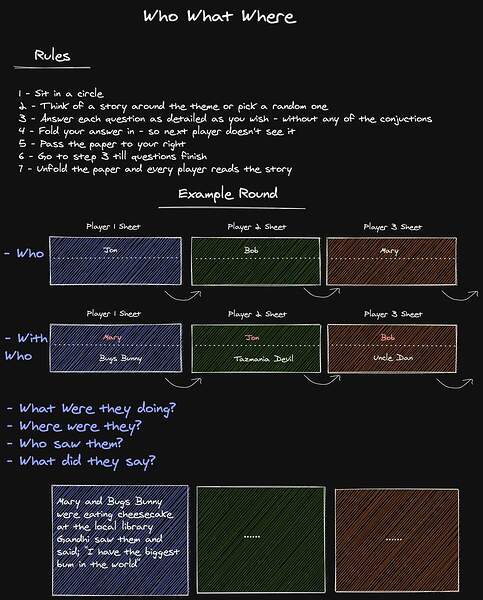
 it would be a fun community thing to do.
it would be a fun community thing to do.
